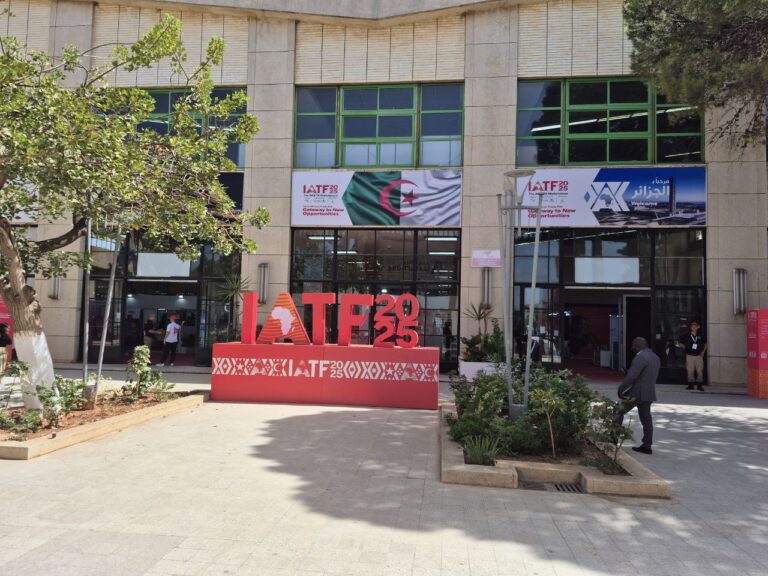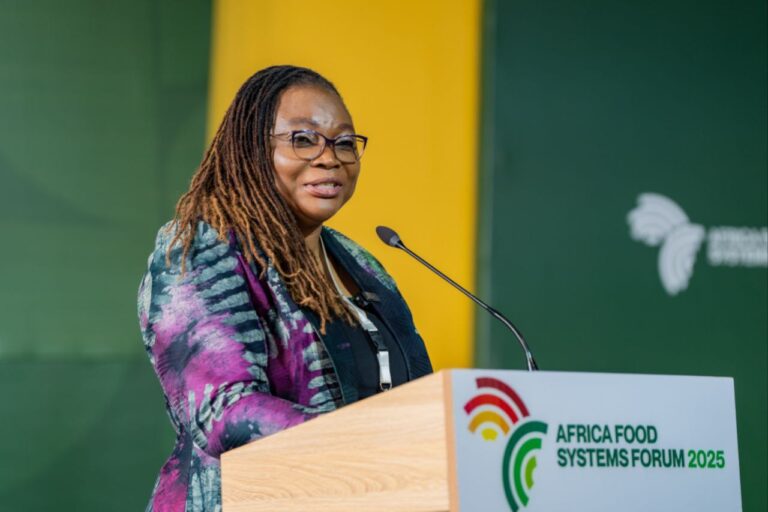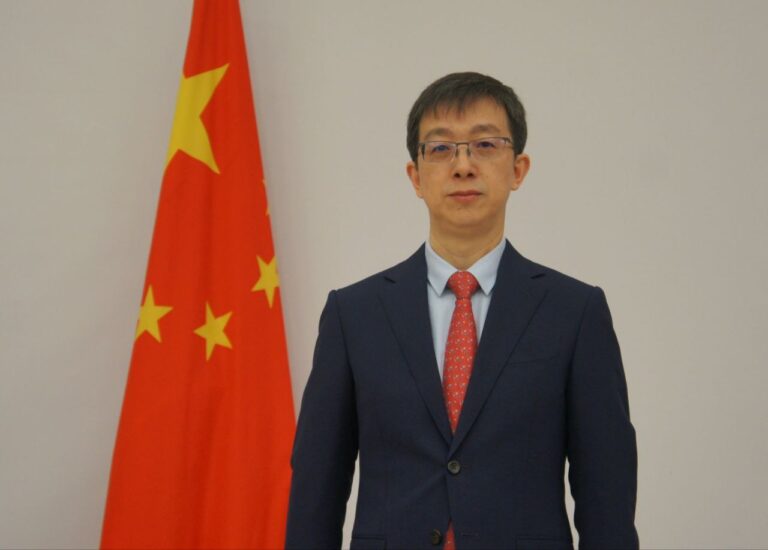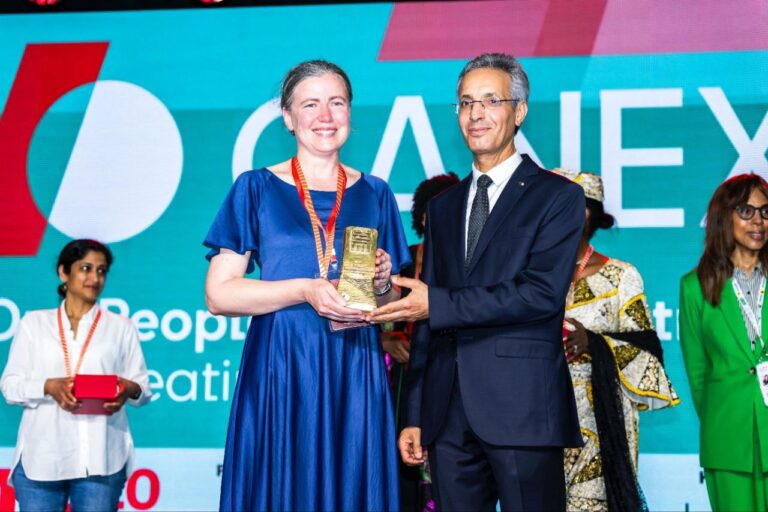By Amb. JIANG Feng
This year marks the 80th anniversary of the victory of the Chinese People’s War of Resistance against Japanese Aggression and the World Anti-Fascist War. This year also coincides with the African Union’s 2025 theme year of “Justice for Africans and People of African Descent through Reparations”. This historic confluence not only highlights the deep-rooted friendship between China and Africa forged through struggles against colonialism and fascism, but also presents a significant opportunity for both sides to strengthen solidarity, enhance cooperation, and jointly address global challenges.
Looking back on history, China and Africa have firmly supported each other and fostered a profound friendship in fighting imperialism and colonialism, in striving for national liberation, and in pursuing development and rejuvenation. As the main theater in the East of the World Anti-Fascist War, the Chinese People’s War of Resistance against Japanese Aggression started the earliest and lasted the longest. With tremendous sacrifice, China held ground in the main Eastern battlefield of the World Anti-Fascist War. Meanwhile, Africa was a key battleground and reliable overseas base for anti-Fascist allies during WWⅡ. More than 30 African countries sent approximately 1.5 million people to the front lines to fight bravely, and around 2.5 million Africans engaged in logistics and transportation, military engineering, and other work, providing valuable personnel and material support for the victory of the war. As Chinese President Xi Jinping points out, similar historical experience, common development tasks and shared strategic interests have bound China and Africa together. China and Africa have always shared a common destiny.
Through shared trials and tribulations, China and Africa have remained committed to defending historical truth and promoting international justice. History is a mirror to the future. We must learn from history so that we can prevent the repetition of past mistakes. Regrettably, yet to this day, certain countries are still trying to whitewash or deny the aggression, distort or falsify history, and even honor the war criminals and justify their crimes. This is not only a challenge to the postwar international order and a violation of human conscience, but also an affront to the people of all nations, including China and African countries, who endured immense suffering during the war.
History shall not be denied, and justice shall not be travestied. The victorious outcomes of the World Anti-Fascist War should be earnestly respected and upheld. The restoration of Taiwan to China is a victorious outcome of World War II and an integral part of the postwar international order. A series of instruments with legal effect under international law, including the Cairo Declaration and the Potsdam Proclamation, have all affirmed China’s sovereignty over Taiwan, and the historical and legal fact therein brooks no challenge. China appreciates the firm commitment of African countries to the one-China principle and their strong support for China’s efforts to safeguard sovereignty, security and territorial integrity. China has also spoken up for our African brothers at the UN and other multilateral settings. China firmly supports the African people in independently resolving African problems, and opposes external interference in the internal affairs of African countries. China appreciates the efforts of the African Union to tackle the destructive legacy of colonialism and the slave trade.
In light of current global challenges, China and Africa should join hands and shoulder their shared responsibilities. Eight decades has elapsed since the end of WWⅡ, and global changes of a like not seen in a century are accelerating. Yet unilateralism, hegemony and power politics have resurfaced. Human society once again finds itself at the crossroads between unity and division, dialogue and confrontation as well as win-win cooperation and zero-sum game. Global challenges of insecurity, imbalanced development and ineffective governance are increasingly prominent. Hot-spot conflicts, major-country confrontation and geopolitical tensions keep emerging. The future of this planet is becoming a cause for growing concern.
In June this year, at the Ministerial Meeting of Coordinators on the Implementation of the Follow-up Actions of the FOCAC, Chinese Foreign Minister Wang Yi stressed that, the more complex and turbulent the international landscape becomes, the more imperative it is for China and Africa to strengthen unity and self-reliance, stand firmly on the right side of history, proactively steer the course of the times, and address the uncertainty in the world with the stability and resilience of China-Africa relations. China and Africa jointly issued China-Africa Changsha Declaration on Upholding Solidarity and Cooperation of the Global South. China and Africa call on all countries, especially countries in the Global South, to work together to build a community with a shared future for mankind, promote high-quality Belt and Road cooperation, and implement the Global Development Initiative, the Global Security Initiative and the Global Civilization Initiative. China and Africa also call on the international community to uphold the principle of extensive consultation, joint contribution and shared benefits, and adhere to true multilateralism. China and Africa have stood side by side, understood and supported each other amid global turbulence and changes. With the certainty of China-Africa relations, we have stabilized an uncertain world and set a benchmark for sincere friendship and equal treatment among Global South countries.
As we look to the future, China and Africa will further deepen their cooperation and jointly chart the course forward. The year 2025 serves not only as a time to commemorate the past, but also as a fresh starting point for constructing the China-Africa community of a shared future. Since entering the new era, President Xi Jinping has visited Africa five times and put forward the principle of sincerity, real results, amity and good faith for China’s Africa policy, and the principle of pursuing the greater good and shared interests, as well as the spirit of China-Africa friendship and cooperation, thereby elevating China’s bilateral relations with all African countries to the level of strategic relations. The overall positioning of China-Africa relations has also been upgraded to an all-weather China-Africa community with a shared future for the new era, and China’s relations with Africa are now at their best in history.
The continuous deepening of China-Africa cooperation is injecting more and fresh impetus to the global development, contributing more positive energy to world stability, and bringing more renewed hope to people across the globe. China has remained Africa’s largest trading partner for 16 consecutive years and has taken the lead in granting 53 African countries having diplomatic relations with China zero-tariff treatment for 100 percent tariff lines. China will accelerate the implementation of the ten partnership actions, promote high-quality Belt and Road cooperation, and advance the Initiative on Supporting Africa’s Industrialization, the Plan for Supporting Africa’s Agricultural Modernization, and the Plan for China-Africa Cooperation on Talent Development, so as to promote high-quality development of China-Africa cooperation. These efforts have served as vital pathways for China and Africa to jointly pursue modernization and to build an all-weather China-Africa community with a shared future in the new era. Under the strategic guidance of the heads of state of both China and African countries, bilateral communication and cooperation have continued to deepen across all sectors, yielding tangible and fruitful results in a wide range of areas.
Drawing lessons from the past to guide the future, we must move forward with determination. A few days ago, Chinese President Xi Jinping proposed the Global Governance Initiative (GGI) at Shanghai Cooperation Organization Plus Meeting. GGI aims to reform and improve global governance, emphasizing sovereign equality, international rule of law, multilateralism, people-centered approach, and real results. Humanity has become a closely intertwined community with a shared future. Enhancing global governance is the right choice for the international community to share in development opportunities and address global challenges. China will strengthen joint efforts with all parties including Africa to explore ways to reform and improve global governance and open up a bright future of peace, security, prosperity, and progress.
Ambassador JIANG Feng is Head of Mission of China to the AU and Representative of China to the UNECA






